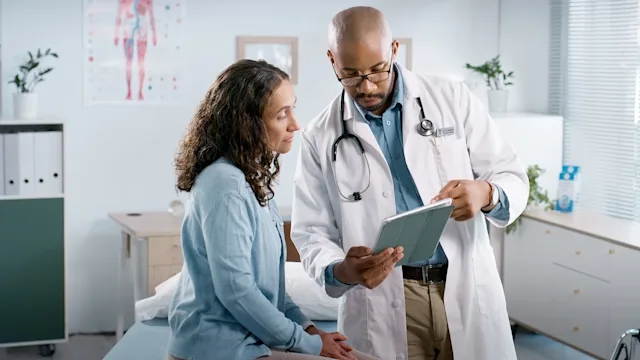It’s a myth that you can relieve depression through mere willpower. Not only can treatment for depression help you feel better, but it can also help prevent risks and complications linked to untreated depression.
In this video, learn the potential risks of not getting help for your depression, according to Jacques Ambrose, MD, MPH, FAPA, Psychiatrist at Columbia University Irving Medical Center.
Jacques Ambrose, MD, MPH, FAPA, is a Psychiatrist at Columbia University Irving Medical Center.
References
Bădescu, S. V., et al. (2016). The association between diabetes mellitus and depression. Journal of Medicine and Life.
Bradvik, L. (2018). Suicide risk and mental disorders. International Journal of Environmental Research and Public Health.
Centers for Disease Control and Prevention. (2024). Diabetes and mental health.
MedlinePlus. (2017). Health risks of an inactive lifestyle.
Mohamed, I. I., et al. (2020). Assessment of anxiety and depression among substance use disorder patients: A case-control study. Middle East Current Psychiatry.
National Heart, Lung, and Blood Institute. (2017). Heart disease and depression: A two-way relationship.
National Heart, Lung, and Blood Institute. (2022). What are sleep deprivation and deficiency?
Schwartz-Lifshitz, M., et al. (2013). Can we really prevent suicide? Current Psychiatry Reports.

Why trust our experts?


Search and compare options












